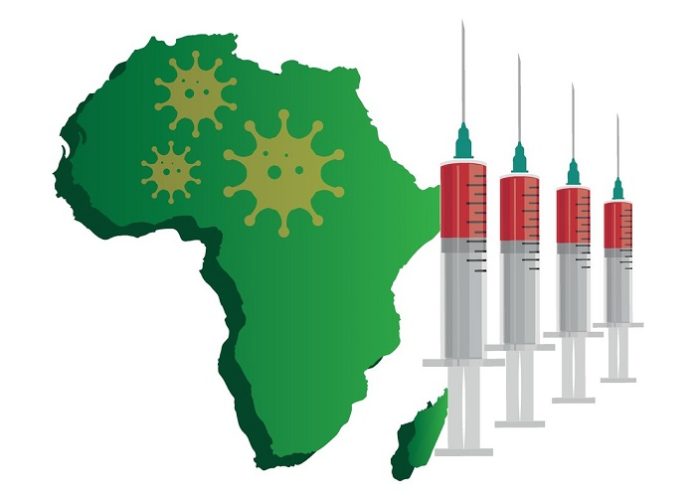Vaccine self-sufficiency on the continent – African-made vaccines for African people – is a priority, needing critical investment and support as well as buy-in from governments and the market, writes Dr Morena Makhoana, CEO of Biovac.
The African Union (AU) has set a bold target: by 2040, 60% of all vaccines, including routine childhood vaccines, used in Africa should be produced on the continent, a significant increase from the current 1%.
This is not just an aspirational goal, but a response to shifting global priorities, funding policies, and a growing recognition of the need for self-reliance in the face of current and future health crises.
By increasing local production, Africa aims to reduce dependence on external suppliers, ensure timely vaccine access, and strengthen its healthcare infrastructure, ultimately improving the continent’s ability to respond to pandemics and other public health challenges.
President Cyril Ramaphosa, during his tenure as chairperson of the African Union, endorsed the Partnership for African Vaccine Manufacturing's (PAVM) target of 60% of all vaccines and committed to investment in local health procurement and production.
The PAVM is a group set up by the AU Heads of State in 2021. To achieve the PAVM’s goal, however, South Africa and the continent need to support local procurement to ensure locally-made made vaccines meet Africa’s health needs.
In short, Africa needs to make the necessary investment in infrastructure and scientific skills to achieve vaccine independence but needs a guaranteed market and guaranteed commitment to procure locally.
Historically, African countries have relied on vaccines from the global north, but this option is becoming less viable as world health security is increasingly shaped by supply chain disruptions and geopolitical shifts.
The African region received only 3% of global Covid-19 vaccine doses in 2021, despite accounting for one-fifth of the world’s population. The recent mpox pandemic and regular cholera outbreaks on the continent are a constant reminder of the stark reality that Africa needs the ability to produce its own vaccines and secure long-term funding from non-traditional sources to invest in the infrastructure.
The recent US funding cuts to South Africa and Africa have also emphasised the need for local self-sufficiency.
This has been recognised by the Africa CDC which, with the African Union Commission, and AUDA-NEPAD, has set up the African Epidemic Fund to manage and directly provide flexible funding to support countries across the continent in outbreak preparedness and response.
After three years of talks, the fund became operational last month and will focus on setting up surveillance systems, scaling up vaccination campaigns, and enhancing community-based interventions to break transmission chains.
Like the World Bank’s Pandemic Fund, which was set up in 2022 to strengthen pandemic preparedness and response, this African fund should specifically strengthen vaccine responses in Africa by working as a guaranteed buyer of local vaccines in bulk to support local manufacturing and investment.
But this all requires a renewed focus by African governments and biotech organisations.
To assist the AU in reaching its goal of 60% of all African-produced vaccines used in Africa, the South African Government should invest in and support local drug manufacturing to keep specialised skills in the country, ensure access to life-saving medicines, and avoid repeating the Covid-19 vaccine scenario.
Local production is not just about disease prevention; it’s an economic strategy, because preventing disease saves billions in health costs. Africa currently imports more than 99% of its vaccines, spending billions annually.
Instead of relying on the global north for vaccine procurement, if African countries harmonised on a regional level and collaborated on manufacturing – and committed to buying the vaccines themselves – the continent would become self-sufficient.
Manufacturers will invest in local vaccine and medicine manufacturing if they have guaranteed long-term buyers, such as a group of African countries or an African-sponsored fund. Routine childhood vaccination is one of the most cost-effective health interventions in which a country can invest: it prevents thousands of cases of disease and disability.
For example, Biovac, the South African company with end-to-end vaccine manufacturing capability, already produces a world-class six-in-one Hexa vaccine that prevents six diseases which can be deadly or disabling to infants; whooping cough, hepatitis B, haemophilus influenzae, polio, diphtheria, influenza and tetanus.
The Hexa vaccine, used across the private and public sector, protects millions of South Africa’s children from preventable life-threatening illnesses or lifelong disability. Being self-reliant for such an integral part of the health programme shows forward thinking on behalf of the government and Biovac, and needs more recognition.
With the right investment strategy, manufacturers like Biovac can expand into other life-saving vaccines to help South Africa and the rest of Africa.
Already, Biovac has three contracts to produce two vaccines that it will manufacture by 2028 for export into the continent.
One is the oral cholera vaccine – where currently there is only one player developing the vaccine globally and a chronic shortage of vaccines whenever outbreaks occur. In 2024, globally there were more 730 000 cholera cases and more than 5 100 deaths in a single year.
The others are vaccines to prevent poliomyelitis and a form of meningitis prevalent in the meningitis belt in Africa.
Not only will producing these vaccines promote South African innovation and save lives but they will play a role in making Biovac financially sustainable, allowing it to keep on producing vaccines for Africa from Africa.
With the right investment, African vaccine manufacturers will be able to serve the health needs of the continent. To achieve the AU’s 60% goal, we need only to build on the foundations that already exist by guaranteeing local procurement.
The recent shifts in global health funding policies show that this should be a priority for governments across the continent.
See more from MedicalBrief archives:
Biovac urges investment in African vaccine-makers
Balancing cheaper, cost-saving imports with support for local vaccine makers
Governments’ support urged for purchase of regional mRNA jabs
Aspen gets $30m grant to make vaccines for Africa

